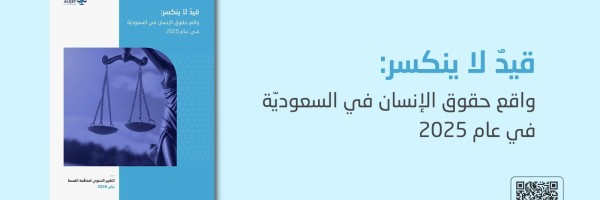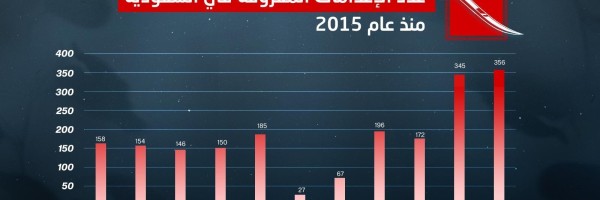Executions for drugs-related offences have made a dramatic comeback in Saudi Arabia this month, despite the announcement in January 2021 of a moratorium on use of the death penalty for such non-violent crimes. Since 10 November 2022, the authorities have executed 20 men – eight Saudi Arabians and 12 foreign nationals, from Pakistan, Syria Jordan, and Nigeria – for drug smuggling or trafficking. Their death sentences were all handed down at the discretion of a judge (ta’ziran), in the continuing absence of a statutory penal code in the kingdom.
The resumption of capital punishment for drugs-related crimes, after a 22-month hiatus, demonstrates the Saudi authorities’ disregard for the right to life and makes a mockery of their previous announcement of a moratorium on such executions. That announcement, made by the government-sponsored Saudi Human Rights Commission (HRC), was never followed up with an official change of policy, so it was always possible that such executions would resume.
Saudi Arabia has for many years been among the countries carrying out the highest number of executions in the world, and until 2020 a high proportion of these executions were for non-violent drug offences. Even before the resumption of such punishments the Saudi authorities had already conducted 126 executions this year – including the execution of 81 men on a single day, 12 March, in the third mass execution of King Salman’s reign. The total number of executions in 2022 so far (as of 23 November) now stands at 148.
The Saudi authorities have also failed to deliver on what have proved to be false promises in relation to the death penalty for juveniles. While the HRC, in its quasi-official capacity, had previously insisted that “no one in Saudi Arabia will be executed for a crime committed as a minor”, the execution of Mustafa Hashem al-Darwish in June 2021 and several death sentences handed down since then, including against Abdullah al-Huwaiti, for alleged offences committed as children have destroyed the Saudi authorities’ claims to have discontinued use of the death penalty for minors.
ALQST’s Head of Monitoring and Communications, Lina Alhathloul, comments: "The Saudi authorities’ recent resumption of executions for drug-related offences once again shows up their empty rhetoric when it comes to the death penalty. While other parts of the world have seen a steady decline in this cruel form of punishment, Saudi Arabia’s leaders are instead ramping up the practice."
ALQST calls on the Saudi authorities to establish an immediate moratorium on use of the death penalty with the aim of working towards its abolition, and to exclude it entirely from the Penal Code currently being drafted. In the mean time, we call on the authorities to restrict application of the death penalty to only the most serious crimes of violence, and completely prohibit the execution of minors.




